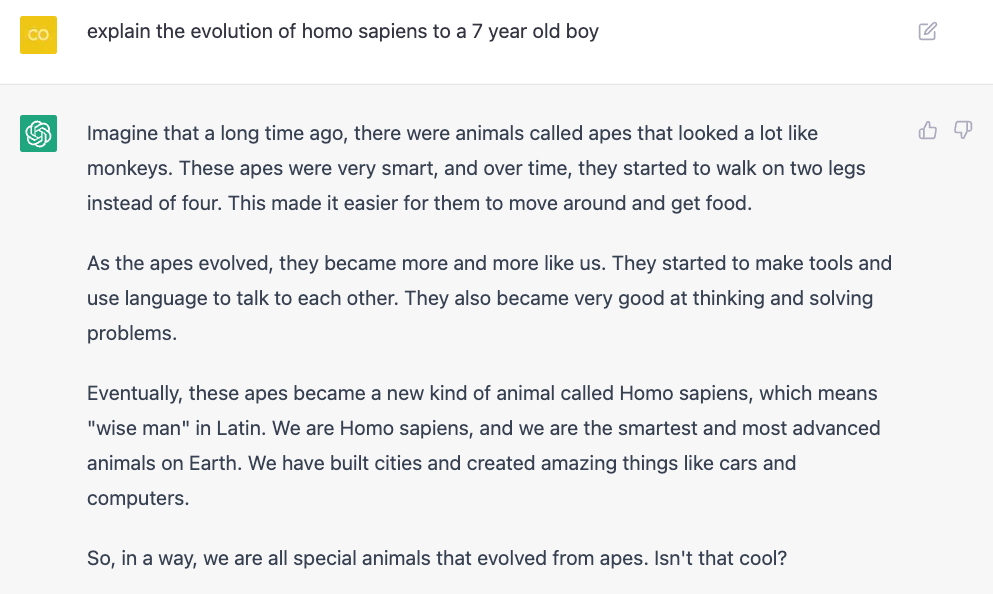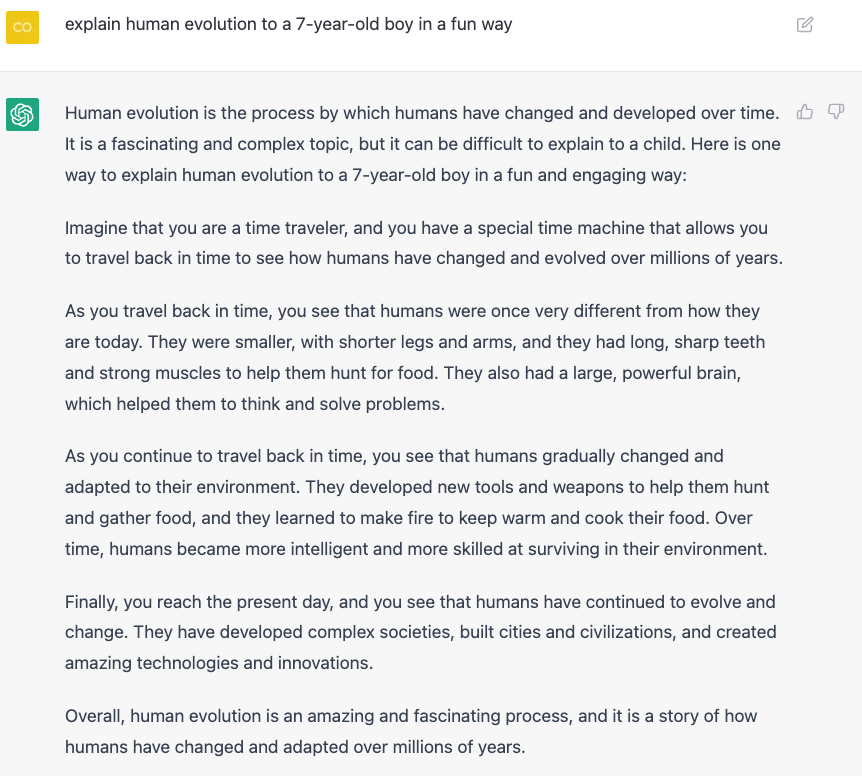“Where do humans come from?” asked our very matter-of-fact 7-year-old. This wasn’t the child to be fabricating fantastical stories to – unlike his 4.5-year-old younger brother – so The Girl and I went for a long walk to discuss this important question. Where do we come from? And how can we explain the origin story of humankind in a meaningful, thoughtful way to our children?i
We had to consider the starting points first. So far, what our 7-year-old knew – or at least thought he knewii – was that there were originally two people on the planet. And was he wrong? Even though his Reformiii Sunday School wasn’t preaching explicitly about how we’re all descended from Adam and Eve, these two mythical progenitors of the human species still exist in our popular Western consciousness. Besides, would even Razib Khan, the great genetic historian, disagree that we have to draw the line in the sand somewhere? And if so, that we would require one man and one women as a starting point? Razib might argue for multi-nodal evolutionary development, but for the sake of storytelling to a 7-year-old audience, and keeping in mind that the map can never be the territory,iv we might as well stick with a single node to simplify our narrative. If we want to call them “Adam and Eve,” great! If we just want to call them “the first two humans,” then that’s, well, slightly dehumanising, but hey that’s science, baby.v
Now of course we can’t ignore our connection and relationship to the rest of the biological world in this story – particularly our closest brethren the fauna – but if there were just originally two of us to being with, what distinguished those first two for the rest of the animal kingdom?
Taking the Biblical fable as a launching off point given its evident pervasiveness in our culture, let’s consider what we intelligently suppose was the “knowledge” contained in the allegorical apple of Genesis. Was it the knowledge of good and evil id est the ability to think itself, per Shakespeare?vi Was is the knowledge that we were not the Joneses but that maybe we could be, per Zohar?vii Either way, these are stories not just of contrasts but of desire. Essentially, these are stories of imagined possibilities; of futures better than the present. So perhaps it’s this possibility of improvement and the eternal lust therefore that separates man from beast!
Comparison is the thief of joy, it’s rightly said, but it’s also the essence of what makes us human. In so many ways it seems that we’re designed to be dissatisfied, to strive, and to find imaginative ways of creating “better” things. Of course, when “better” isn’t readily at hand, “new” will do, but either way we will such things into being via stories (and for that matter dreams) and in this relentless pursuit we ruthlessly shape the world to satisfy our desires no matter how far-reached and perverse. Thus the overwhelming success of the Modern Industrial Capitalist Operating System (aka MicOS) the world over, and ultimately to worlds beyond…
But it all starts with a story. Indeed, in the very meta-sense, it’s the story that we could even construct an origin story itself – with no “proof” nor fossil record – and that we could apply apples, snakes, and gardens to understand ourselves in the context of the cosmos, and improve our place within it.
At least that’s what we’re going with for now. But maybe that story will change and evolve, as all stories must.
- The neo-Normcore way would just be to punch our question into ChatGPT and regurgitate that AInswer to our children:

But, like, how unsatisfying (and not cool!) is that? Or maybe the parents just need to work on their prompts…

Gotta put in those reps! ↩
- Y’see kids, it’s faith all the way down! “Secular” society is no more possible than round bananas or purple cows. ↩
- What is “Reform” Judaism, you ask? Ask another Yid and they’ll tell you that it’s the pretend-hippie-granola-liberal-wannabe version, like the Unitarian Church of the Old Testament, and they might not be entirely wrong. But history of the last two centuries will show that this progressive offshoot is in fact the counter-point against which the rest of Jewry has defined itself in contrast to ever since. In essence, therefore, we’re the scapegoat’s scapegoat! And if that kind of iconoclasm isn’t the most Jewish thing since the invention of challah bread then I’m not sure what is. Plus, we get choral music at synagogue, mixed gender seating, services in our secular tongues, and even female Rabbis, which are all pretty great! ↩
- Words are not reality! They can only hope to describe reality symbolically. Symbols are incredibly useful but they still have biases and blindspots, sometimes for the better, sometimes not, but we need them to function and coordinate together as a species. We just need to keep in mind that symbols are only that, maps(!), and that they can at their worst lend a deceptive degree of certainty when in fact reality is impossibly complex, multi-faceted, and ever-evolving.
Symbols can be almost anything but the really successful ones are HUGELY powerful and therefore valuable. Think of the American flag, the Hammer and Sickle, the Star of David, or the Eye of Providence. And it’s with this in mind that crypto-native values are currently being transmitted through JPEGs, some of which are going to take over the world much sooner than we think. ↩
- What, like 20th century eugenics didn’t “scientific evidence” out the wazoo? Of course it did! But hey, sometimes you just gotta trust the science man… :/ ↩
- Y’know!
Hamlet: What have you, my good friends, deserv’d at the hands of
Fortune, that she sends you to prison hither?
Guildenstern: Prison, my lord?
Hamlet: Denmark’s a prison.
Rosencrantz: Then is the world one.
Hamlet: A goodly one, in which there are many confines, wards, and dungeons, Denmark being one o’ th’ worst.
Rosencrantz: We think not so, my lord.
Hamlet: Why then ’tis none to you; for there is nothing either good or bad, but thinking makes it so. To me it is a prison. - Per Rabbi Zohar, who proposed that our original sin was desiring what others had and we had-not:
Had Adam and Eve eaten from the tree of knowledge for its own sake they could have remained in Eden. The reason for their Exile is that they only desired it for mimetic reasons.
For those asking how I get this. My text-based answer is Genesis 3:5. The snake says if you do it you will be LIKE god. That’s mimesis right there. It’s the promise of mimesis that precedes the Fall, not God’s proscription. וִהְיִיתֶם֙ כֵּֽאלֹהִ֔ים יֹדְעֵ֖י ט֥וֹב וָרָֽע׃
And recall that Eve also does not hear the proscription directly from God. So motivation can’t be rebellion. I mean it can be, but that’s more of an interpolation! The literal interpretation is that she’s motivated by the snake’s argument.

> mixed gender seating, services in our secular tongues, and even female Rabbis
None of this is unique to the “Reform”-istas; the best most novel claim y’all have are guitars on the bima; everything else is SOP for conservatives getouttaheah
Dear Ben, the map is not the territory! Which is also to say that geography is alive and well, despite our best efforts, and that what’s true in Sparta isn’t necessarily true in Athens, and vice versa.